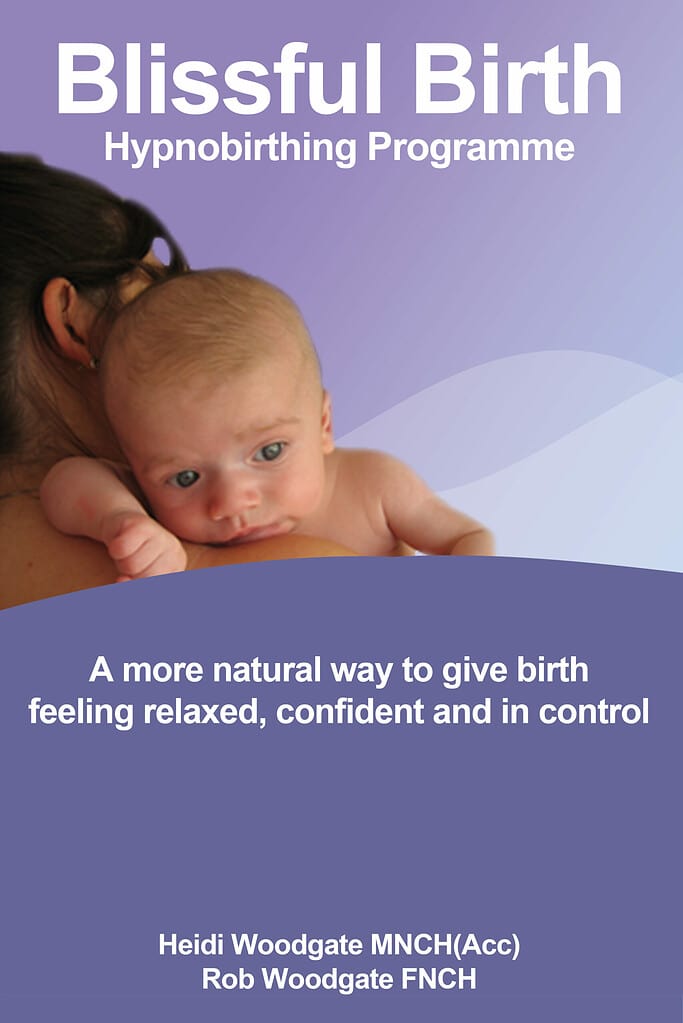During pregnancy and childbirth, expectant mothers face a wide range of physical and emotional challenges, and having the right support can make all the difference.
While partners and loved ones often serve as primary support, doulas have become an additional option for some expectant parents.
But, what exactly is a doula? And what do doulas do?
A doula is a trained professional who provides physical, emotional, and informational support to women and their families before, during, and after childbirth.
Let’s dig deeper into a doula’s role.
Table of Contents
- What are the duties of a doula?
- What’s the difference between a doula and a midwife?
- Are doulas better than midwives?
- Benefits of using a doula
- What about the father’s role when using a doula?
- How much does a doula cost?
- What are the benefits of having a doula?
- What are the disadvantages of doulas?
- Final Thoughts
What are the duties of a doula?
A doula’s duties revolve around providing personalized support to the mother, helping her feel empowered and informed throughout the childbirth process.
They are not medical professionals, but they are knowledgeable about the medical aspects of labor and delivery.
Before the due date, they offer basic childbirth education and information about techniques to reduce stress and anxiety during childbirth.
During delivery, they provide comfort with pain-relief techniques, encourage participation from the partner, and act as an advocate for the mother to ensure her preferences are honoured by the medical team.
After birth, they can assist with breastfeeding and encourage bonding between the new baby and family members.

Overall, a doula’s duties include:
- Providing continuous emotional and physical support during labor.
- Offering natural pain-management techniques, such as massage, aromatherapy, and reflexology as well as guidance on relaxation and breathing techniques, and hypnosis.
- Helping the mother make informed healthcare choices and advocating for her during labor and delivery.
- Encouraging and supporting the mother to fulfil specific desires she might have for her birth.
- Assisting with the breastfeeding process and encouraging bonding after birth.
- Educating the mother about childbirth and the procedures and possible complications during pregnancy, labor, and delivery.
- Discussing with the mother the position she would like to be in when her baby is born, how to move around in labor, and other ways the doula can help her focus on her body and her baby.
- Supporting the mother’s partner during labor and delivery.
What’s the difference between a doula and a midwife?

While both are focused on maternal health and well-being, there are significant differences in their roles and responsibilities.
The key differences between a doula and a midwife are:
- A midwife is a healthcare professional who is medically trained in childbirth, while a doula is a trained birth companion focused on providing emotional and physical support during childbirth.
- Midwives are licensed to provide medical care, including administering medications and delivering babies, while doulas are not.
- Doulas focus on providing comfort, reassurance, and guidance to the mother and her partner, while midwives focus on monitoring the labor process and providing medical advice.
Are doulas better than midwives?
Doulas and midwives both play essential roles in supporting women during pregnancy and childbirth, but their roles and responsibilities differ. Therefore, it is not necessarily accurate to say that one is “better” than the other.
As mentioned earlier, doulas are trained professionals who offer emotional, physical, and informational support to expecting parents. They work closely with the parents to help them make informed decisions about their birth plan, and provide continuous labor support. Doulas do not have medical training and do not perform medical procedures, but they can be valuable addition to the birth team by providing comfort measures and advocating for the parents’ wishes.
On the other hand, midwives are medical professionals who provide comprehensive prenatal care, including medical exams and tests and are responsible for monitoring the health of both the parent and the baby. They have the training and expertise to detect and manage any potential complications that may arise during pregnancy and childbirth. Midwives also assist with the actual delivery of the baby and can provide medical interventions if necessary.
So, are doulas better than midwives? The answer is not a simple yes or no. It ultimately depends on what type of support you are looking for during your pregnancy and childbirth journey.
Doulas offer non-medical emotional and physical support, while midwives provide medical care and have the ability to perform medical procedures. Both can be valuable members of your birth team, and some parents even choose to have both a doula and a midwife for a more well-rounded support system.
Benefits of using a doula

A mom-to-be and her family can greatly benefit from the expertise of a trained doula. Here are some of the key benefits of using a doula during pregnancy, childbirth, and the postpartum period:
Personalized support
Doulas offer personalized support to mothers, catering to their individual needs and preferences. They provide continuous emotional support, answer questions, and provide reassurance during pregnancy and childbirth.
Reduced need for medical interventions
Studies have shown that women who use doulas during childbirth are less likely to have medical interventions such as C-sections, epidurals, and the use of forceps or vacuum extraction. Doulas use natural pain management techniques such as breathing exercises, hypnosis, and positioning to help reduce pain and discomfort during labor.
Improved birth experience
Doulas provide a calming presence during childbirth, helping to reduce stress and anxiety. This leads to a more positive childbirth experience, which is beneficial for both the mother and the baby.
Better postpartum recovery
Doulas can also offer support in the postpartum period, helping mothers to recover physically and emotionally. They offer practical support such as helping with breastfeeding, preparing meals, and caring for the baby.
Increased partner involvement
Doulas also support partners, providing them with guidance and encouragement to participate in the birth process. This can help partners to feel more involved and less overwhelmed during childbirth.
Cost-effective
Although doulas are not typically covered by insurance, hiring a doula can actually be cost-effective in the long run. With a reduced need for medical interventions and shorter hospital stays, the overall cost of childbirth can be significantly reduced.
What about the father’s role when using a doula?

When it comes to the birth process, the use of doulas has been associated with many benefits for expectant mothers. But what about the father’s role when using a doula?
Here’s what you need to know:
- A doula does not replace the father’s role in the birth process but rather complements it. Doulas provide continuous support throughout the labor process, allowing the father to take breaks when needed, or step in when he feels comfortable.
- Doulas can help fathers understand the birth process and provide information about what to expect during labor and delivery. They can also suggest comfort measures and positions to help the mother through the birthing process.
- Doulas can help fathers be more involved in the birth process by encouraging them to participate in decision-making and providing suggestions for how they can support the mother. This can help fathers feel more confident and engaged during the birthing experience.
- In some cases, fathers may feel anxious or overwhelmed during the birth process. Doulas can provide emotional support not only to the mother but to the father as well, helping them both feel more comfortable and prepared.
So, while the mother is the primary focus during labor and delivery, doulas can play an important role in supporting fathers as well.
By providing information, encouragement, and emotional support, doulas can help fathers feel more confident and involved in the birth process, ultimately leading to a more fulfilling experience for everyone involved and positive birth outcomes.
How much does a doula cost?
The cost of hiring a doula can vary depending on several factors, such as location, the number of visits you schedule, and the services they offer.
However, here are the average rates for doulas in the US and UK:
In the United States, the average cost of hiring a doula range between $800 to $2,500 or $20 and $50 per hour for a postpartum doula. Doulas in larger cities or with more experience may charge higher rates.
In the United Kingdom, a birth doula will typically charge a set fee that covers their services during the birth process, and this fee can start at around £600. On the other hand, a postnatal doula charges by the hour for their services, typically between £15-£30 per hour. Again, the cost may vary depending on the doula’s experience and the services offered.
And if you didn’t know it yet, although rare, there are some insurance plans in the US that may cover the cost of a doula, so it’s worth checking with your insurance provider to see if this is an option for you.
In the UK, there are also some doulas who are employed by the National Health Service (NHS), as well as some voluntary schemes and projects that offer doula care. Additionally, social services may fund doula work in some cases.
For instance, Doula UK, which is an organization that supports doulas and promotes doula work, also has a program called the Doula Access Fund. This program provides free birth or postnatal doula support to those who are in greater need and cannot afford to pay for doula services.
What are the benefits of having a doula?

One of the biggest benefits of having a doula is the personalized emotional support they offer. As birth can be a stressful and challenging experience, doulas have the ability to provide mothers and partners with comfort and reassurance during this time.
Additionally, doulas can help the mother find comfortable positions, suggest pain relief techniques, and provide physical support during labor.
Advocacy is another key role for doulas as they can help ensure that the mother’s preferences and wishes are respected during the childbirth process.
Doulas can also provide education and information about childbirth, empowering the mother to make informed decisions about her care.
Finally, doulas can provide additional support after childbirth, including assistance with breastfeeding, newborn care, and emotional support for the entire family.
Studies have shown that having a doula can lead to shorter labors, fewer medical interventions, decreased amount of pain medication,and lower rates of cesarean birth. In addition, women who have a doula are more likely to have a positive childbirth experience and feel satisfied with their care.
If you’re considering hiring a doula, the benefits speak for themselves!
What are the disadvantages of doulas?
As with any service, there may be some disadvantages to hiring a doula. However, it’s important to note that these are subjective and may not apply to everyone.
Here are some potential drawbacks to consider:
Cost
One of the biggest disadvantages of hiring a doula is the cost as it may be too expensive for some families. Depending on where you live and the services you require, the cost of a doula can range from hundreds to thousands of dollars. This may not be feasible for everyone, especially if they have to pay out of pocket.
Availability
Depending on the area you live in, there may be a limited number of doulas available, which may make it challenging to find one who can attend your birth.
Compatibility
Finding a good doula for you and your partner may take some time and effort. Not every doula will be compatible with your personality or preferences, so it’s important to take the time to find the right fit.
Medical procedures or interventions
While doulas can offer emotional and physical support during labor, they are not medical professionals and cannot provide medical care or make decisions on behalf of the mother.
In some cases, medical procedures or interventions are necessary to ensure the health and safety of the mother and baby, and a doula may not be able to provide the necessary support.
Unfulfilled satisfaction
Some women may have unrealistic expectations of what a doula can provide, which can lead to disappointment if those expectations are not met. It’s important to have a clear understanding of what a doula can and cannot do before hiring one.
Despite these potential disadvantages, many women find that the benefits of having a doula far outweigh any drawbacks. It’s important to weigh the pros and cons carefully and make a decision that is best for you and your family.
Final Thoughts
As you consider your options for pregnancy and childbirth, it’s worth taking a closer look at the role of a doula. These trained professionals offer a range of valuable services that can help you navigate the challenges of bringing a new life into the world.
From emotional to physical comfort measures, and from education to advocacy, doulas can make a meaningful difference in your experience.
By working closely with you and your partner, a doula can help you feel more confident, empowered, and informed throughout this transformative time. A doula can be an invaluable ally as you prepare for birth and beyond.
But then again, doulas may not be right for everyone.
While they have been shown to have many benefits, some individuals may prefer to have a different kind of support during their pregnancy and birth. It is important for expectant mothers and families to carefully consider their options and decide what type of support system will work best for them.
At the end of the day, the goal is to have a positive and empowering birth experience, and the right support can help make that happen.




